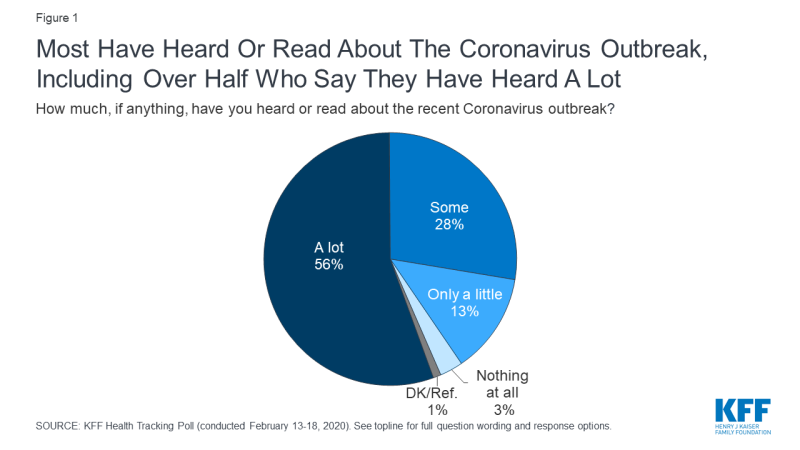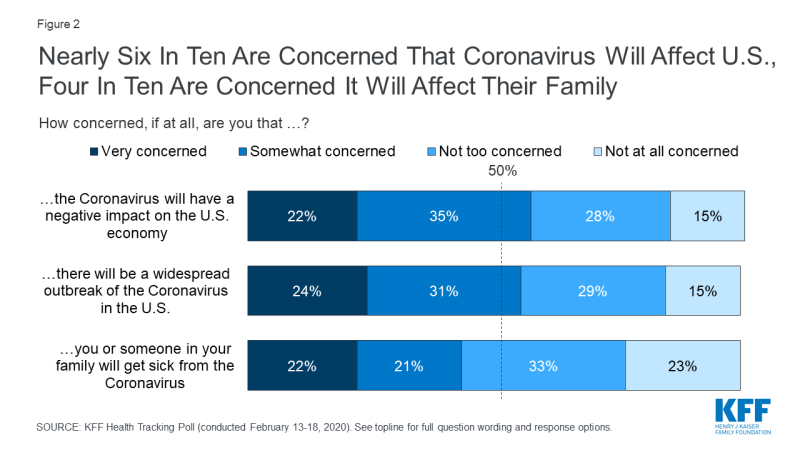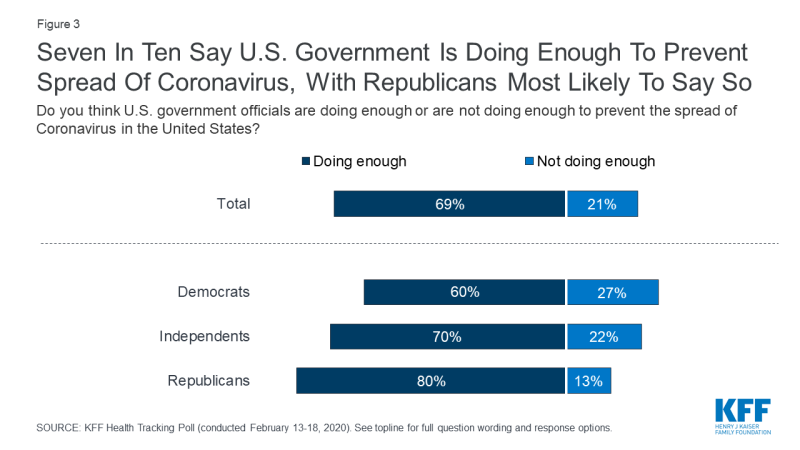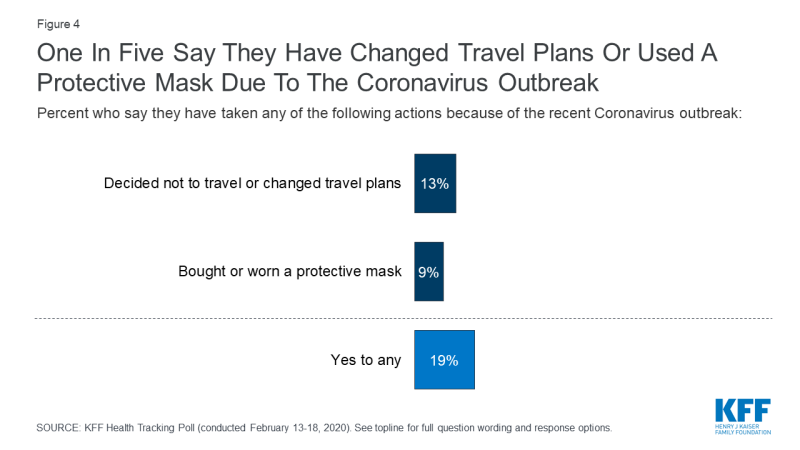The Public's Awareness Of and Concerns About Coronavirus
On December 31, 2019 in Wuhan, China the first cases of a new Coronavirus were reported. Over the span of two months, the virus – also known as COVID-19 to public health experts – has spread beyond Wuhan, across China, and around the world. On January 30, 2020, the World Health Organization (WHO) declared the Coronavirus outbreak a public health emergency of international concern, only the 6th declaration of its kind in WHO history. Subsequently, the U.S. Department of Health and Human Services declared it a public health emergency for the United States on January 31, 2020.
The February KFF Health Tracking Poll gauged the public’s knowledge of and concerns about the Coronavirus in addition to exploring public opinion on how the outbreak is being addressed by the U.S. government.
The public is hearing a lot about the Coronavirus
Our poll indicates that the Coronavirus outbreak is on the public’s radar, with an overwhelming majority saying they have heard or read at least “a little” about the outbreak, and over half (56%) saying they have heard or read “a lot.” In addition, nearly nine in ten (87%) are aware that there have been cases of Coronavirus diagnosed in the U.S. As of February 25, there have been 35 confirmed cases of Coronavirus in the United States, and no confirmed deaths. Track the virus’ spread on the KFF COVID-19 Coronavirus Tracker.
Across demographic groups, substantial shares report having heard “a lot” about the Coronavirus, including large shares across gender, education levels, and health status. Adults ages 50 and older are somewhat more likely than younger adults to have heard or read “a lot” about the outbreak compared to other age groups, with about half of adults under age 50 saying they have heard or read “a lot,” and this share rising to nearly two-thirds among adults ages 50 and older. In addition, roughly half of adults with less than a 4-year college degree say they’ve heard “a lot”, and this share rises to 66% among those with a college degree or higher. These patterns by age and education mirror findings from previous surveys showing that older adults and those with higher levels of education tend to pay closer attention to health news. See Appendix 1 for more information on demographic differences.

Figure 1: Most Have Heard Or Read About The Coronavirus Outbreak, Including Over Half Who Say They Have Heard A Lot
The Public IS concerned about the health and economic effects of Coronavirus
Large shares of the public report feeling concerned about various possible effects of the Coronavirus. At the time the survey was fielded (February 13-18, prior to the U.S. stock market decline on February 24), a majority (57%) said they were very or somewhat concerned that the Coronavirus would have a negative impact on the U.S. economy. A similar share (55%) expressed concern that there will be a widespread outbreak of the Coronavirus in the U.S.
On a personal level, a smaller, yet sizeable share (43%) is concerned that they or someone in their family will get sick from the Coronavirus. Those in fair or poor health are more likely to say they are very or somewhat concerned that they or a family member will contract the Coronavirus compared to those who report having an excellent, very good, or good health status (60% vs. 39% respectively). Furthermore, women, people with lower levels of education as well as adults ages 65+ are more likely to be concerned about this possibility than their counterparts (See Appendix 1).

Figure 2: Nearly Six In Ten Are Concerned That Coronavirus Will Affect U.S., Four In Ten Are Concerned It Will Affect Their Family
Majorities across partisans say the U.s. government is doing enough in their Coronavirus response, and one in five Report Taking Personal Actions
When it comes to the government’s response, seven in ten (69%) say they think U.S. government officials are “doing enough” to prevent the spread of Coronavirus, including large majorities across partisans. Republicans are most likely to say the U.S. government officials are doing enough (80%), followed by independents (70%) and Democrats (60%).

Figure 3: Seven In Ten Say U.S. Government Is Doing Enough To Prevent Spread Of Coronavirus, With Republicans Most Likely To Say So
Despite concerns about the possible effects of Coronavirus on the nation as a whole and on individuals and their families, as of the time of this poll, few say that they have taken personal preventive actions due to the Coronavirus outbreak. Roughly one in ten say they have cancelled or changed their travel plans (13%), or have bought or worn a protective mask due to the Coronavirus outbreak (9%). About two in ten overall (19%) say that they have taken either one of these actions.

